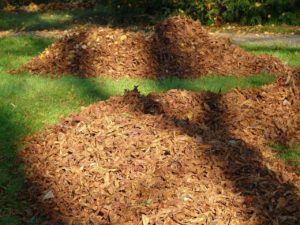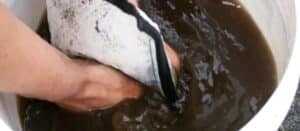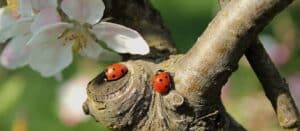As autumn approaches, it’s time to start gearing up for the final push of the growing season and prepare your trees, and flower and shrub beds for the winter.
With this in mind, we offer the following fall advice:
Fall Is For Planting
 Before the cold weather strikes, take advantage of the seasonal transition to do a little bit of plant inventory. Early fall is the perfect time to begin the process of installing new beds (though hold off on most plantings!) and repair any damaged structures in advance of the spring.
Before the cold weather strikes, take advantage of the seasonal transition to do a little bit of plant inventory. Early fall is the perfect time to begin the process of installing new beds (though hold off on most plantings!) and repair any damaged structures in advance of the spring.
If you plan on planting bulbs, fall is perfect for planting tulips, daffodils, irises, peonies, alliums, and some perennials! It’s best to wait until the ground is cool but not frozen, however, as warmer soil may cause them to break dormancy early.
While spring is usually the best time for planting most trees and shrubs, fall is also a good option. Just be sure to plant before mid-October so roots will have a chance to establish before the ground starts to freeze.
Finally, if you’re looking for a bit of fall color, mums and kales are a very popular choice for fall. Transplant in late September or early October to enjoy the most of these cold tolerant plants, or if you plan to perennialize them.
Prune Carefully
Fall can be tricky for pruning. Spring, and, surprisingly winter, when trees and shrubs are dormant, are better times to prune back growth.
However, fall is a good time to remove diseased and dead limbs from your trees and shrubs to prevent further destruction in the winter and spring.
Just be sure to keep pruning limited to preventative care.
Clean Up: Pull Weeds & Mulch Leaves
 Weeds should top your list for removal. Fall is the time when many plants go to seed and weeds are no exception. By removing weeds before they get a chance to seed, you greatly reduce the number of weeds that will reappear in the spring.
Weeds should top your list for removal. Fall is the time when many plants go to seed and weeds are no exception. By removing weeds before they get a chance to seed, you greatly reduce the number of weeds that will reappear in the spring.
Raking up leaves? Try composting them instead! Decomposed leaves contain more nutrients than some other forms of composts, and reduces the overall yard waste that ends up in landfills.
Maintenance: Water & Mulch Plants
Continue to water your lawn and plants. Water is essential for plants as they continue to ready themselves by storing energy for the winter.
Trees and shrubs especially need water in the winter months, and it is best to keep the soil moist before freezing.
Assess your mulched beds, trees, and shrubs and consider reapplying in areas that are bare or in need of topping up. Mulching your plants (even those just planted bulbs!) can help insulate your plants’ roots.
Protection: Keep Plants Safe From Deer, Snow & Winter Wind
Remember to apply antidessicant sprays or cover sensitive plants at the appropriate time for your area. Wind and weather conditions can cause severe damage to your plants.
And don’t forget deer spray. Hungry deer will eat just about anything during the cold winter months so apply spray to keep them away.
GET THE LATEST NEWS
Subscribe to the Organic Plant Care Newsletter and get timely and helpful tips and updates monthly.
There's no spam - we promise!





